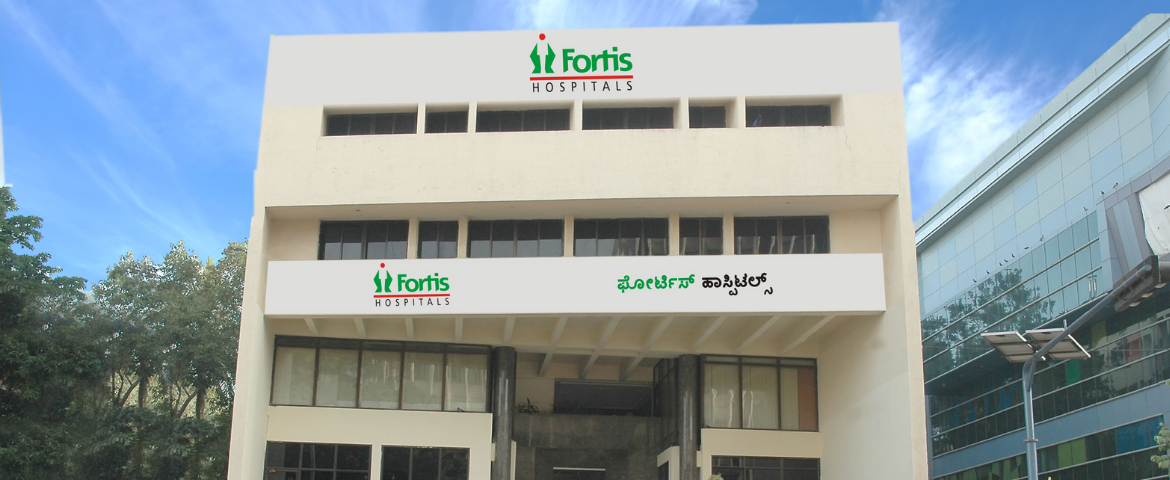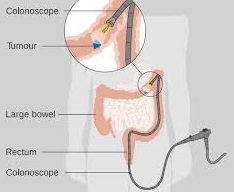Colon Cancer Treatment cost in India
The cost of Colon Cancer Treatment in India
ranges from USD 6000 to USD 9000
Colon Cancer Treatment:
Surgery is typically required as part of colon cancer treatment to remove the malignancy. Your medical team may suggest additional therapies including chemotherapy and radiation therapy. The location and stage of the cancer will determine your treatment options. When developing a treatment plan, your healthcare staff also takes your preferences and general health into account.
Surgery for colon cancer in its early stages:
A very small colon cancer may be treated with a minimally invasive surgical technique, like:
1. Polypectomy, the removal of polyps during a colonoscopy. In cases where the cancer is confined within a polyp, eliminating the polyp might eradicate the entire cancer.
2. Mucosal resection via endoscopy. Larger polyps can be removed using this treatment during a colonoscopy. The polyp and a tiny portion of the colon's lining can be removed with the use of specialized equipment.
3. Laparoscopic surgery, often known as minimally invasive surgery. Polyps that are too big to remove with a colonoscopy can be removed with this kind of surgery.
Procedure Summary:
Colon Cancer Treatment:
Surgery is typically required as part of colon cancer treatment to remove the malignancy. Your medical team may suggest additional therapies including chemotherapy and radiation therapy. The location and stage of the cancer will determine your treatment options. When developing a treatment plan, your healthcare staff also takes your preferences and general health into account.
Surgery for colon cancer in its early stages:
A very small colon cancer may be treated with a minimally invasive surgical technique, like:
1. Polypectomy, the removal of polyps during a colonoscopy. In cases where the cancer is confined within a polyp, eliminating the polyp might eradicate the entire cancer.
2. Mucosal resection via endoscopy. Larger polyps can be removed using this treatment during a colonoscopy. The polyp and a tiny portion of the colon's lining can be removed with the use of specialized equipment.
3. Laparoscopic surgery, often known as minimally invasive surgery. Polyps that are too big to remove with a colonoscopy can be removed with this kind of surgery.
Disease Overview:
Colon Cancer:
A growth of cells called colon cancer starts in the colon, a section of the large intestine. The first and longest segment of the big intestine is called the colon. The last segment of the digestive system is the large intestine. Food is broken down by the digestive system and used by the body.
Colon cancer can strike anyone at any age, but it usually strikes older persons. Usually, it starts off as little cell clusters inside the colon called polyps. Although most polyps are benign, some may eventually develop into colon cancer.
Disease Sign and Symptoms:
Many patients with colon cancer initially show no symptoms. Symptoms may probably vary depending on the location and extent of the cancer in the large intestine.
Colon cancer symptoms can include:
1. A shift in digestive patterns, such as increased frequency of diarrhea or constipation.
2. Bleeding in the rectum or blood in the stool.
3. Persistent abdominal pain, gas, or cramping.
4. The impression that a bowel movement doesn't completely empty the colon.
5. Exhaustion or weakness.
6. Losing weight effortlessly.
Disease Causes:
What causes the majority of colon cancers is unknown to doctors.
When DNA alterations occur in colon cells, colon cancer results. The instructions that inform a cell what to do are encoded in its DNA. The alterations instruct the cells to proliferate rapidly. When healthy cells naturally die as part of their lifecycle, the modifications allow the cells to live on.
There are too many cells as a result. The cells may aggregate into a mass known as a tumor. Healthy bodily tissue can be invaded by the cells and destroyed. The cells may eventually separate and disperse to other areas of the body. Metastatic cancer is the term for cancer that spreads.
Disease Diagnosis:
The following tests and methods are used to diagnose colon cancer:
1. Colonoscopy: To observe the whole colon and rectum, a long, flexible, and thin tube is connected to a video camera and monitor. A surgeon may insert surgical instruments via the tube in order to remove polyps and obtain tissue samples.
2. Extracting a tissue sample for testing: The process of extracting a tissue sample for laboratory testing is called a biopsy. The tissue sample for colon cancer is frequently taken during a colonoscopy.
3. Blood tests: Colon cancer cannot be diagnosed by blood tests. However, blood tests can provide information about general health, including the function of the liver and kidneys. One way to check for low red blood cell counts is through a blood test. This finding could suggest that bleeding is being caused by colon cancer.
Carcinoembryonic antigen, or CEA, is a protein that is occasionally produced by colon tumors. The level of CEA can be monitored over time using blood tests. The outcome may indicate if the malignancy is responding to therapy. CEA blood tests may be used to identify recurrence of the malignancy following treatment.
Disease Treatment:
Surgery is typically required as part of colon cancer treatment to remove the malignancy. Your medical team may suggest additional therapies including chemotherapy and radiation therapy. The location and stage of the cancer will determine your treatment options. When developing a treatment plan, your healthcare staff also takes your preferences and general health into account.
Early-stage colon cancer surgery
A very small colon cancer may be treated with a minimally invasive surgical technique, like:
1. Polypectomy, the removal of polyps during a colonoscopy. In cases where the cancer is confined within a polyp, eliminating the polyp might eradicate the entire cancer.
2. Mucosal resection via endoscopy. Larger polyps can be removed using this treatment during a colonoscopy. The polyp and a tiny portion of the colon's lining can be removed with the use of specialized equipment.
3. Laparoscopic surgery, often known as minimally invasive surgery. Polyps that are too big to remove with a colonoscopy can be removed with this kind of surgery. During this process, an abdominal wall incision is made multiple times by the surgeon to carry out the operation. Through the incisions, instruments with cameras attached display the colon on a video monitor. Additionally, the surgeon could remove samples from the lymph nodes surrounding the malignancy.
Country wise cost comparison for Colon Cancer Treatment:
| Country | Cost |
|---|---|
| India | $6930 |
| Thailand | $11007 |
| United Arab Emirates | $20096 |
| Singapore | $41842 |
Treatment and Cost
30
Total Days
In Country
- 4 Day in Hospital
- 2 No. Travelers
- 26 Days Outside Hospital
Treatment cost starts from
$7700
Popular Hospital & Clinic
Featured Hospital
0 Hospitals
Related Packages
More Related Information
Some of the top rated hospitals are:
- Turkey
- Kolan International Hospital, Sisli
- Istinye University Bahcesehir Liv Hospital
- Istinye University Medical Park Gaziosmanpasa Hospital
- I.A.U VM Medical Park Florya Hospital
- Altinbas University Medical Park Bahcelievler Hospital
- Medical Park Antalya Hospital
- Medical Park Tarsus Hospital, Mersin
- Thailand
- Bangpakok 9 International Hospital
- Bumrungrad International Hospital
- Bangkok Hospital
- Bangkok International Hospital
- Samitivej Hospital
- BNH Hospital
- Aek Udon International Hospital
- Phuket International Hospital
- Bangkok Christian Hospital
- Thonburi Hospital
- Kasemrad Hospital Sriburin
- Saudi Arabia
- Italy




